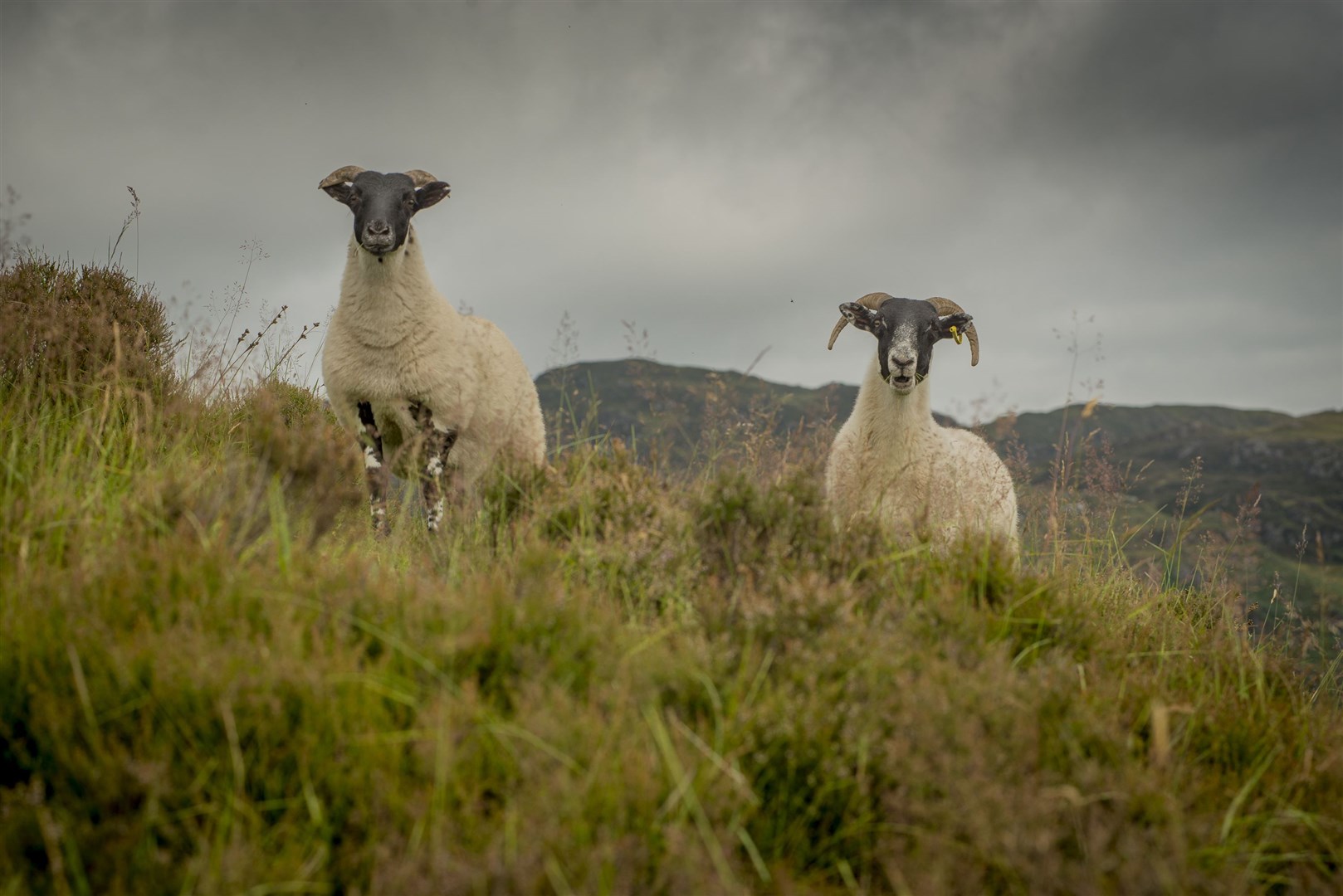YOUR VIEWS: High speed rail link better than dualling the A9

Strathspey MSP Fergus Ewing has done sterling work arguing for a more practical implementation of the bottle return deposit and Highly Protected Marine Areas schemes.
But does his advocacy for spending £3 billion (or over £1000 per Scottish income taxpayer) on dualling the A9 between Inverness and Perth make as much sense?
Clearly funds have to be made available for significant safety improvement measures on the A9 but its complete dualling at such a cost, with the huge interim disruption to traffic entailed, may not be the best transport option.
The alternative of introducing a much improved rail track from Glasgow and Edinburgh to Inverness has much to be commended — certainly in environmental terms.
Do the Highlands really want to see a major increase of cars and lorries on its roads with all the pollution this would entail?
Would it not be better to encourage visitors to come to the north of Scotland by rail, appreciate the scenery on the way, and arrive much less stressed than if travelling by motor.
When they arrive, tourists could hire cars, minibuses, coaches or ideally use public transport — the supply of which would expand significantly if the demand was there.
With trains capable of travelling at speeds of over 100mph and duelling of the line between Perth and Inverness, the 115 mile rail journey from Edinburgh could be completed in well under two hours even after allowing for two stops on the way. It would be perfectly feasible to live in the Highlands and commute to Edinburgh or Glasgow a few days a week.
The reinvigoration of the central Highlands’ economy resulting would definitely require more local housing but this would be partly offset by less call for second homes.
Central Belt congestion would also benefit from fewer Highland motorists clogging the overcrowded streets of its towns and motorways.
I have no idea what such a proposal would cost — probably more than duelling the entire A9. However, when its long term social benefits are taken into account, this could well be the best solution.
Maybe the Greens, not Fergus Ewing, have the right answer here?
Angus Tulloch
Kingussie.
* * * *
Changes on way to use of stamps with The Queen
Many of your readers will have seen that postage stamps are changing.
From 1st August the ‘everyday’ stamps showing the Queen’s head on a plain coloured background will only be valid if they have a unique barcode on the right-hand side.
From that date, using the old, non-barcoded stamps will result in a surcharge for the person you send the item to.
I encourage people to use-up any stamps they have in wallets or purses before 31 July.
Customers who cannot use any non-barcoded stamps before 31 July will still be able to swap them for new barcoded stamps through Royal Mail’s simple and free Swap Out scheme.
Nobody should be out of pocket as a result of this change.
A leaflet with a form was delivered to every household recently, but customers can also print out a form from our website; call our Customer Experience team to order one; or pick one up at a local Royal Mail delivery office or Post Office.
Non-barcoded Christmas and other Special stamps with pictures on continue to be valid for postage and should not be swapped.
More information can be found here: https://www.royalmail.com/sending/barcoded-stamps
Nick Landon
Chief Commercial Officer
Royal Mail.
* * * *
Safety works is needed on A9 now
Regarding the Nicky Marr column ‘Remember the promise Humza Yousaf made us about the A9? Let’s take a look at what he said...’ in the Strathy.
The focus on getting procurement and construction of all of the eight remaining A9 sections which are ready to go, so to speak, is right.
However Nicky Marr’s piece fails to mention that the ninth, Pass of Birnam to Tay Crossing, has still not even completed the Preferred Route design stage.
Here at Dunkeld and Birnam, and indeed everywhere else, the priority has to be actions by Transport Scotland to make all sections as safe as possible now, in particular at junctions and other high risk points, while waiting for dualling.
Our local Junctions Action Group is pressing Transport Scotland on this.
Alasdair Wylie
Dunkeld.
* * * *
Reducing herbivores for trees will increase risk of wildfire in park

Fiona Holmes wants an additional 35,000 hectares of woodland in the Cairngorms National Park by 2045.
Ms Holmes (woodland advisor for the Cairngorms National Park Authority) believes there is lots of space available. (Strathspey & Badenoch Herald, 20th July 2023).
She would prefer native trees established by natural regeneration without the need for any new fencing.
This wish list needs a consensus of objectives by those investing in this change of land use.
The Forestry Commission was set up in 1919 primarily to make the UK more self-sufficient in the forest products it consumes.
In 1913 only 4.5 per cent of Scotland was covered in trees, trees grown in the UK at that time provided only seven per cent of the forest products we consumed.
Today trees cover 18.5 per cent of Scotland, the UK produces 19 per cent of the forest products it consumes. Today the UK contributes one per cent of the world’s net greenhouse gas emissions from activities within the UK but around five per cent if we take account of the goods we import.
We have off-shored many of our more polluting industries, in my opinion with insufficient consideration to sustainability of the resource, security of the supply, human or livestock welfare, net green house gas emissions, biodiversity or pollution.
If we wish to produce more in the UK of the forest products we consume, we need more woodland below 450 metres above sea level with a more diverse range of trees species.
This means restricting further woodland expansion to around 40 per cent of the land area of the Cairngorms National Park, approximately 180,000 hectares.
In 2018 the Cairngorms National Park Forest Strategy estimated there was 74,259 hectares of woodland in the Cairngorms National Park.
If today there is approximately 78,000 hectares of woodland, an additional 35,000 hectares would make 113,000 hectares in total or 63 per cent woodland cover of land under 450 metres elevation in the Cairngorms National Park.
I suspect this could only be achieved by reducing other land uses such as farming.
Fencing allows crops and herbivores to be managed in close proximity to each other.
If we reduce herbivores that consume rank vegetation, we risk increasing fuel loads which would increase the intensity of wildfires when they occur. Wildfires are now a significant contributor to greenhouse gas emissions in the world and global warming.
Jamie Williamson
Alvie Estate Office
Kincraig.
* * * *
Insensitive words on A9 were out of order
I SALUTE the reasoned, balanced and finally tuned editorial piece in last week’s Strathy, on the continuing A9 dualling controversy.
In not taking anything away from the tragedy of death on this road the point was made, supported by professionals like the police and motoring organisations, that there is no such thing as a bad road, just bad drivers.
However I remain surprised and deeply saddened by the increasingly near hysterical furore being broadcast on TV and in the written word particularly by the self-styled A9 Action Group and some others supported by local MSP Fergus Ewing.
Such insensitive words by Highland councillor Bill Lobban as ‘people are fed up with body bags being dragged off the A9’ are utterly deplorable and do not honour the dead or their grieving families.
In knowing that no other political party or government attempted work on this road, I am certain that Fergus accepts the SNP took on the dualling of the A9 in good faith and will definitely complete the work as soon as is possible.
Grant Frazer
Cruachan
Newtonmore.
Do you want to respond to this article? If so, click here[2] to submit your thoughts and they may be published in print.
References
- ^ Click here to sign up to our free newsletters! (www.strathspey-herald.co.uk)
- ^ here (www.strathspey-herald.co.uk)